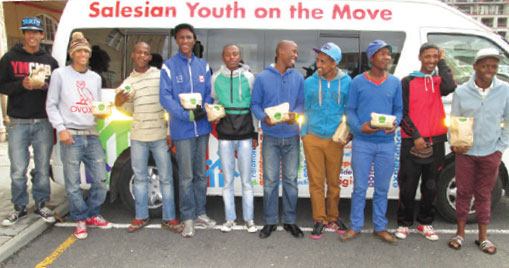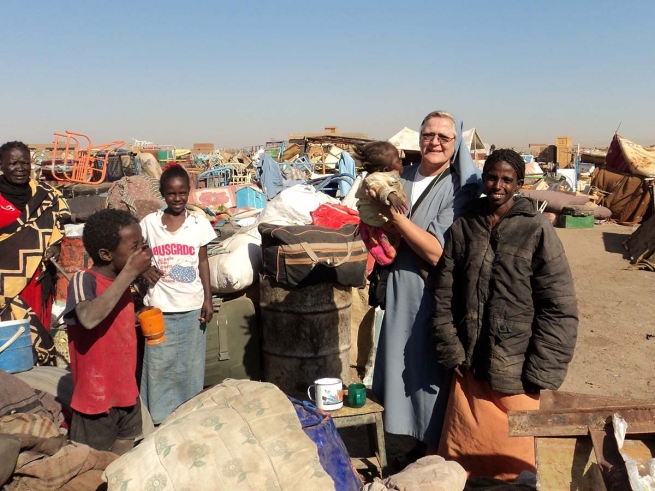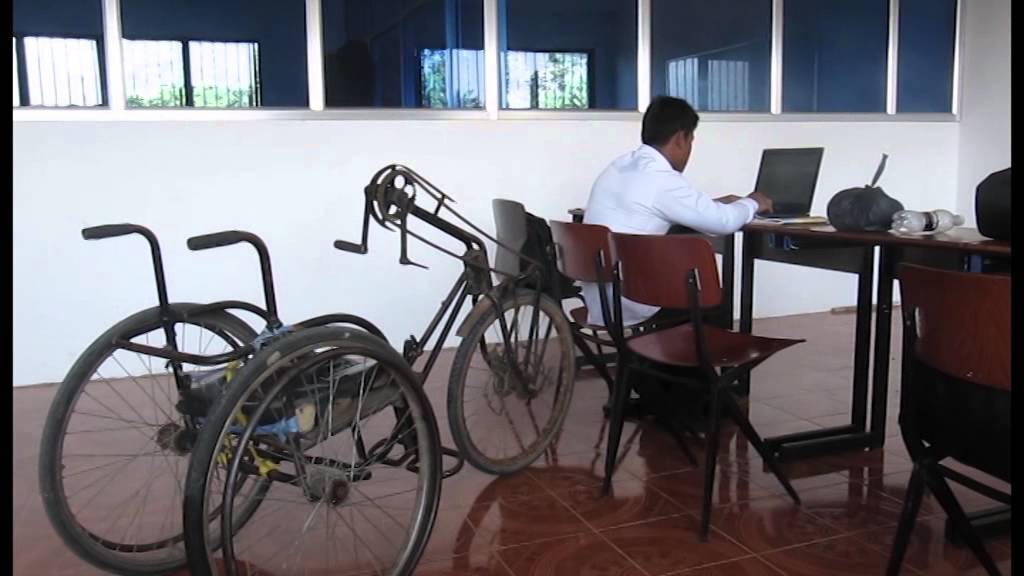SOUTH AFRICA: Salesian Institute’s Youth Projects Provide Safety, Shelter and Education for Poor Youth

(MissionNewswire) Poverty is extensive in South Africa with more than 45 percent of the population living below the poverty line, according to UNICEF. A significant percentage of the population struggles to survive on less than one dollar a day. The country is plagued by high crime rates and violence against women and girls and has been the hardest hit by the HIV/AIDS crisis in the world. There is an urgent need for education to help prevent the spread of the deadly virus and to help lift youth out of poverty.
Salesians have been working to restore hope in South Africa, particularly among poor youth. From empowering girls and young women to building schools and teaching trade skills, the Salesians have a long history of affecting change in the country.
Since 1910, the Salesian Institute has been helping homeless, unemployed and impoverished youth in Cape Town, the second most populous city and legislative capital of South Africa. Through the Institute’s Youth Projects program, Salesians provide shelter, education and workforce development services, meeting the basic needs of the youth they serve while helping them break the cycle of poverty.
“Salesians living and working in South Africa tailor programs to specifically meet the needs of youth in the local communities they serve,” says Father Mark Hyde, executive director of Salesian Missions, the U.S. development arm of the Salesians of Don Bosco. “Homeless and hungry youth are not able to focus on educational pursuits or reach their full potential until their most basic needs are met.”
The Institute’s Youth Projects consist of five main programs – an outreach program, a hostel for homeless youth, a learn-to-live education program and two workforce development programs. The projects are managed by a diverse team, some of whom live on the premises to support youth in the hostel and outreach programs.
The Institute’s outreach program functions as a drop-in center working to build relationships with youth who live on the street or in government-built townships in the southeast of Cape Town, called the Cape Flats. Outreach workers provide support and assistance to close to 125 youth each month whose lives are often characterized by drugs, gangs, violence and abuse. Youth are able to access counseling, drug awareness and prevention programs, educational services and job assistance.
For those in need of additional care, a youth hostel accommodates 24 males between the ages of 18 and 26 who would not otherwise be able to access the Institute’s two workforce development programs. In addition to offering formal education, youth are invited to participate in informal life skills training and recreational activities, which help them focus on their studies and plan for their futures. Once training courses have been completed, job placement officers assist students in finding and retaining employment. Each year the hostel serves more than 60 young men.
The Learn-to-Live education program is a school designed specifically for vulnerable and at-risk children and youth. Recognized as an independent school by the Western Cape Education Department, the program provides basic education and skills training for youth at-risk who, for a variety of socio-economic reasons, are not able to succeed in mainstream schools. The school offers various levels of education for 13 to 19 year old students. All students participate in academic classes and skills workshops and receive a cooked meal each day. Demand for the program is high and 100 youth from the local communities and shelters in and around Cape Town access the program each day.
As part of the Learn-to-Live program, close to 40 youth over the age of 16 attend technical skills training workshops each day where they are taught basic skills in welding, wood and leather craft as well as panel beating. The items they create are sold at local craft markets. Over the past three years, the program has secured partnerships with construction and engineering firms that employ youth from the program.
“Education is a direct path out of poverty, and once youth are able to enter a stable household and have their basic needs met, they are able to excel in school and lead a more productive life,” adds Fr. Hyde.
###
Sources
Salesian Institute Youth Projects
UNICEF – South Africa



